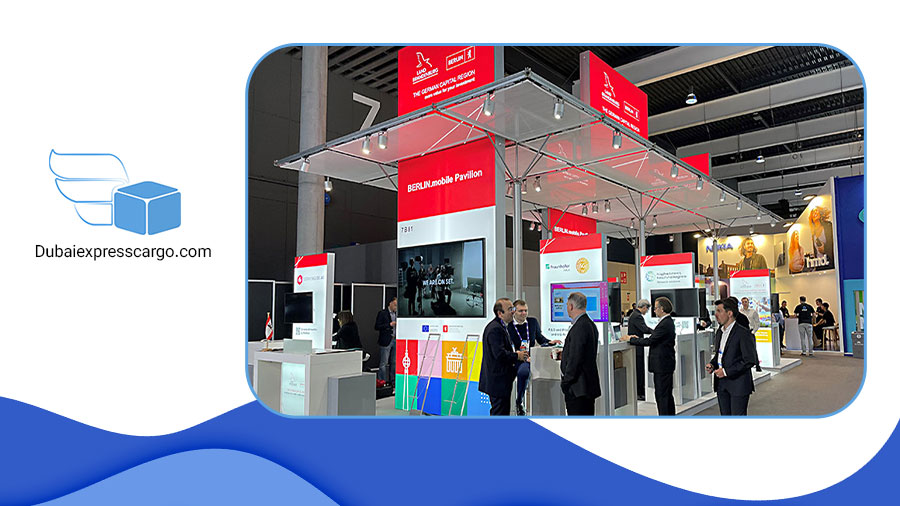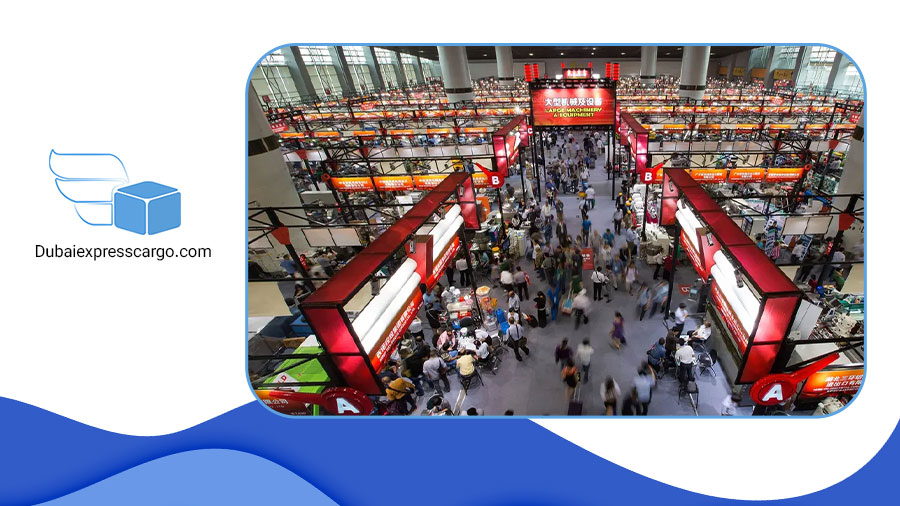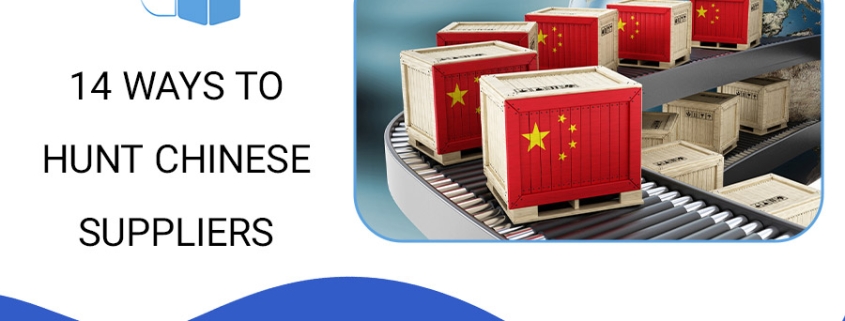14 ways to hunt Chinese suppliers
In the global marketplace, sourcing products from reliable Chinese suppliers is a strategic imperative for many businesses. This article explores 14 effective ways to connect with trustworthy Chinese suppliers, from leveraging online B2B platforms like Alibaba to attending trade shows, utilizing business directories, and engaging with professional networks.
From online research to in-person visits to manufacturing hubs, this comprehensive guide provides actionable insights, ensuring businesses can navigate the complexities of finding reputable Chinese suppliers.
Whether you’re a seasoned importer or exploring new possibilities, mastering these diverse approaches is essential for establishing robust and successful supply chain partnerships in the dynamic landscape of Chinese commerce.
Contents
1- Online B2B Platforms

B2B platforms play a pivotal role in connecting businesses with Chinese suppliers. Alibaba, Global Sources, and Made-in-China.com stand out as key platforms offering many products and suppliers.
To begin your search, formulate specific criteria outlining the products or suppliers you seek. This helps streamline your quest and ensures you find your business needs precisely.
As you navigate these platforms, delve into supplier profiles to gain insights into their capabilities, experience, and product range. Pay attention to reviews and ratings provided by other buyers.
These serve as valuable indicators of a supplier’s reliability and the quality of their products. Positive reviews often signal a trustworthy partner, while any concerns raised by previous buyers should be carefully considered.
Alibaba, in particular, allows you to assess providers using their Gold Supplier status, indicating higher credibility and longevity. Utilize the communication tools provided on these platforms to directly engage with suppliers, seeking clarification on any queries or concerns you may have.
Online B2B platforms offer a convenient and efficient way to discover and connect with Chinese providers.
2- Trade Shows

Trade exhibitions allow firms to engage directly with Chinese suppliers. You must investigate and choose appropriate Chinese trade exhibitions before starting your tour. These fairs feature varied goods and sectors, making them ideal for finding suppliers.
After choosing a trade fair, careful planning is essential. Plan your attendance goals and strategy to enhance your experience. Schedule time to tour exhibits and talk to suppliers. Focus on in-person encounters to create trust and comprehend products and services.
Trade exhibitions are great for networking. Use chances to network with industry executives, buyers, and, most crucially, suppliers. Attend trade fair seminars, workshops, and networking events to network and learn from experts.
Bring plenty of business cards and promotional materials to promote your firm. These brochures spark conversations and help suppliers remember your company during the trade fair.
3- Business Directories

Tap into the wealth of business directories, such as Kompass or Yellow Pages China, to effortlessly discover potential suppliers for your business. These directories serve as comprehensive catalogs, organizing businesses based on industry, location, and services.
Start by accessing these user-friendly platforms and inputting specific search criteria relevant to your needs. Whether you’re seeking suppliers for raw materials or finished products, the directories offer an efficient way to filter through the vast array of options available in the Chinese market.
As you navigate these directories, pay attention to the details provided in each listing. Company profiles typically include contact information, a brief description of services, and sometimes customer reviews. This valuable information aids in the initial screening process, helping you identify promising suppliers and streamline your search for the perfect business partner.
4- Professional Networks

Elevate your supplier search by becoming part of professional networks and industry associations linked to your business. Joining these communities opens many opportunities for connecting with reliable Chinese suppliers. Look for associations aligned with your industry, trade, or product category.
Engaging in networking events hosted by these groups is a strategic move. Attend conferences, seminars, and social gatherings to meet potential suppliers face-to-face. These occasions create a conducive environment for building relationships, understanding supplier capabilities, and discussing your business needs.
Actively participate in discussions within these professional networks, both online and offline. Platforms like LinkedIn offer a virtual space for connecting with industry professionals and potential suppliers. Leverage these connections to seek recommendations, gather insights, and expand your network.
5- Agent or Sourcing Companies

Simplify your search for Chinese suppliers by enlisting the expertise of a reputable sourcing agent or company. Begin by conducting thorough research to identify agents with a proven track record. Check client testimonials and assess their experience in your industry.
Once you’ve selected an agent, transparent communication becomes crucial. Clearly articulate your specific requirements, quality standards, and other expectations from the supplier. This ensures that the agent understands your needs accurately.
Emphasize the importance of transparency throughout the sourcing process. Request regular updates on supplier progress, potential challenges, and deviations from the agreed-upon terms. Establishing open communication channels contributes to a smoother collaboration and minimizes the risk of misunderstandings.
6- Social Media and Forums

Harness the power of social media and forums in your quest for Chinese suppliers. Platforms like LinkedIn and industry-specific forums are treasure troves of networking opportunities. Join groups and discussions relevant to your business and product category.
Participation is key. Engage actively in conversations, share your expertise, and stay updated on industry trends. This establishes your presence and puts you in direct contact with potential suppliers.
Take the initiative to send direct messages to suppliers you find interesting. Introduce yourself, express your business needs, and inquire about their products or services. This direct approach fosters personal connections and provides a platform for detailed discussions.
7- Government Resources

Navigate the world of Chinese suppliers with the support of government resources. Tap into organizations like the China Chamber of Commerce for Import and Export to access valuable information and listings of potential suppliers.
Once you identify suppliers through these channels, verifying their legitimacy is crucial. Cross-check business registrations, licenses, and other credentials. This step ensures that you’re engaging with reliable and trustworthy partners.
Leverage government support services available for businesses. Many governmental bodies assist international businesses looking to connect with Chinese suppliers. Take advantage of their expertise, guidance, and support throughout your supplier discovery process.
8- Supplier Directories

Simplify your search for Chinese providers by exploring industry-specific directories. These directories focus on listing suppliers based on their expertise and product offerings. To streamline your efforts, seek directories that align closely with your product or industry.
Start by identifying directories that cater to your niche. Whether you’re in electronics, textiles, or any other industry, there are directories designed to connect you with suppliers in that field. These platforms often categorize suppliers based on their specialties, making finding those that match your requirements easier.
Once you’ve located relevant directories, delve into the listings. Check supplier profiles, paying attention to their capabilities, certifications, and any customer reviews or ratings available. This step ensures that you’re finding suppliers and gaining insights into their track record and reputation in the industry.
9- Visit Manufacturing Hubs

Embark on a hands-on journey to discover Chinese suppliers by visiting manufacturing hubs like Shenzhen or Guangzhou. These hubs are bustling with many businesses and offer a unique opportunity to explore local markets firsthand.
While there, take the time to visit factories and engage with potential suppliers face-to-face. This direct interaction allows you to assess the production facilities, product quality, and the overall working environment. It provides a tangible sense of the supplier’s capabilities and commitment to quality.
Building relationships is a key focus during these visits. Attend industry events, seminars, or even local business gatherings. Establishing personal connections with suppliers fosters trust and lays the groundwork for a strong and lasting business partnership.
10- Import/Export Fairs

Dive into the vibrant world of global trade by participating in import/export fairs and exhibitions in China and your home country. These events are bustling marketplaces, providing an excellent platform to connect with potential Chinese suppliers.
When attending these fairs, come prepared with a clear strategy. Identify specific booths or pavilions relevant to your industry and engage directly with suppliers. Take the opportunity to inspect product samples, discuss business terms, and build relationships face-to-face.
Participating in fairs not only allows you to explore the Chinese market but also brings the international market to your doorstep in your home country. It’s a two-way street, offering a chance to discover new suppliers and showcase your business to a global audience.
Ensure you have ample business cards and promotional materials to share your company information. These events are not just about transactions; they’re about building lasting partnerships. By actively participating in import/export fairs, you position your business for success in international trade’s dynamic and interconnected world.
11- Quality Inspection Companies

Use quality inspection firms to improve your sourcing strategy. These specialized businesses verify product quality and frequently have dependable sources.
Find a quality inspection business with a strong presence in China and an established track record in your sector. These firms vet vendors for you.
Joining a quality inspection business gives you access to their broad networks. Suppliers who regularly fulfill high requirements underpin these networks. Since you’re using these seasoned inspection specialists’ networks, procuring from new suppliers might be much safer.
Hiring a quality inspection company boosts supplier selection confidence. It’s a smart step that protects your products’ quality and connects you to a network of dependable, high-quality suppliers.
- Related Article: Goods Inspection
12- Referrals and Recommendations

Use industry and commercial contacts to find suppliers. Ask trusted sources about Chinese providers.
Once you have referrals, check others’ supplier experiences. Ask about reliability, communication, and product/service satisfaction. Firsthand information aids decision-making.
Strategy: build a network for continuing suggestions. Attend industry events, internet forums, and networking events to build trustworthy relationships. A strong network provides dependable referrals, making supplier discovery more dynamic and responsive to your company’s demands.
13- Supplier Assessment Services
Explore supplier assessment services to improve supplier selection. These specialized services assess supplier credibility, helping you make educated selections.
Prioritize complete assessment services. Supplier reliability, product quality, and compliance requirements should be assessed. A complete evaluation shows a supplier’s competence and devotion to your company’s needs.
These services’ assessment reports should guide your choices. The integrated overview of these reports simplifies supplier comparison. Assessments help you identify suppliers that fulfill product specs and corporate principles.
14- Consult with Experts
Navigate the complexities of international trade confidently by seeking guidance from professionals. Consult with experts in the field of international trade to gain insights into the intricacies of sourcing from China.
When seeking advice, prioritize experts who deeply understand the Chinese market, like Dubai Express Cargo. Their firsthand knowledge can provide valuable perspectives on cultural nuances, business practices, and regulatory considerations specific to China.
Consider utilizing consultancy services for targeted assistance. These services often offer specialized expertise tailored to your industry and business needs. Whether you’re navigating legal requirements, cultural nuances, or logistical challenges, consulting with experts streamlines your decision-making process.




Leave a Reply
Want to join the discussion?Feel free to contribute!